 |
ChatGPT homepage. Photo: Bloomberg . |
A 2023 study from the University of California, Riverside found that composing a 100-word email using AI consumes about 519 ml of coolant, equivalent to a standard bottle of water. This amount is mainly used to cool the giant data centers that serve AI systems.
Generative AI has recently been used for a variety of purposes, including composing emails, designing presentations, and creating content. However, few people realize that each command given to AI comes with an environmental cost, putting pressure on already stressed power grids and water resources.
Don't overuse AI
Not only does it consume water, statistics from the Electric Power Research Institute show that each search request on AI consumes about 10 times more electricity than a regular search on Google (2.9 Wh compared to 0.3 Wh).
Meanwhile, creating a 100-word email using ChatGPT requires about 0.14 kWh of electricity, which is equivalent to powering 14 LED bulbs for an hour and a bottle of water. This is a small number on its own, but adds up over a large scale.
With AI imaging, power consumption is significantly higher (5 times) than regular text.
 |
ChatGPT interface. Photo: Bloomberg . |
Dr Scott McDonald, lecturer in Supply Chain Management and Logistics at RMIT University Vietnam, said users should consider the necessity before each interaction with AI.
“Using AI to do complex financial analysis can be very effective, saving hours of manual work. But asking AI to write a simple welcome email or LinkedIn post? It’s not worth it to me,” said Dr. McDonald.
According to Dr. McDonald, if 1/10 of Vietnamese workers use AI every day just to write emails, the resources consumed for the whole year could be up to hundreds of thousands of cubic meters of water, enough electricity to supply a small urban district.
“But we’re not just using AI to write emails. So what’s the real impact we’re having on the country’s resources?”, a representative from RMIT University Vietnam emphasized.
Energy consumption problem
Vietnam currently has dozens of small-scale data centers, with a total national capacity of 182 MW, lower than the target set for 2030 (870 MW). However, domestic and foreign companies are investing billions of dollars in large-scale data centers with a capacity of hundreds of MW.
The growing adoption of AI among Vietnam’s tech-savvy population is also contributing to increased demand, spurring the construction of data centers in neighboring countries such as Singapore and Malaysia.
 |
Not all AI features consume the same amount of energy. Photo: Unsplash . |
Dr McDonald predicts that the increase in data centers around the world could put pressure on power grids and water resources in many countries.
“Many people think of AI as a magical technology that lives in the cloud and has no impact on the outside world. In fact, every AI command consumes physical resources from somewhere in the world,” Dr. McDonald added.
The International Energy Agency forecasts that global data center electricity consumption will reach 1,050 TW in 2026. That would be double the 2022 figure and only slightly higher than the entire electricity consumption of Japan.
Overall electricity demand in Vietnam is expected to increase by about 10-12% annually from now until 2030, with digital technology accounting for an increasingly large proportion. This poses a challenge to the domestic power grid system.
Balanced solution
In that context, Dr. McDonald emphasized that users need to use AI consciously. First, AI should be reserved for complex or high-impact tasks, thereby promoting the value and benefits of AI.
Next, it’s a good idea to compose your regular communications yourself instead of handing them off to AI, to avoid recreating unnecessary content. Finally, think carefully before using image generation features.
 |
Dr Scott McDonald, lecturer in Supply Chain Management and Logistics at RMIT University Vietnam. Photo: RMIT University Vietnam . |
Many large companies around the world are researching solutions. Microsoft, Google and others are investing in energy-efficient data centers and researching cooling methods that use less water.
In Vietnam, a typical example is Viettel 's 30 MW data center in Hoa Lac, which uses green technology and renewable energy to meet 30% of its electricity consumption.
As Vietnam continues to rapidly digitize, understanding the real-world impact of virtual tools is increasingly important.
“The next time you ask an AI to compose a simple email, remember that it costs a bottle of water and enough electricity to light your desk for hours. After all, the most sustainable AI command may be the one you never send,” Dr. McDonald added.
Source: https://znews.vn/moi-email-viet-boi-ai-ton-mot-chai-nuoc-post1557056.html










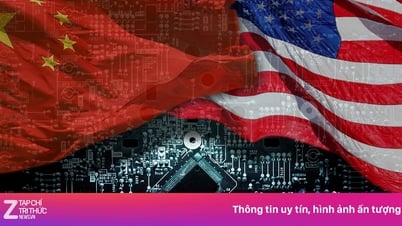











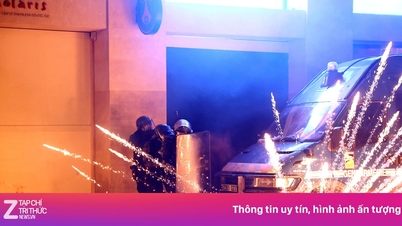















































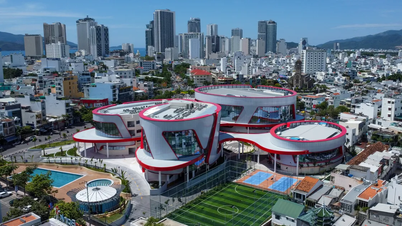

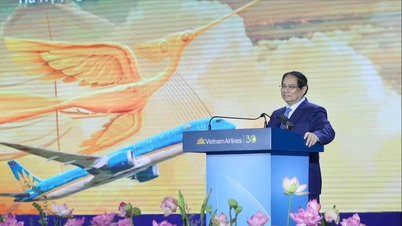
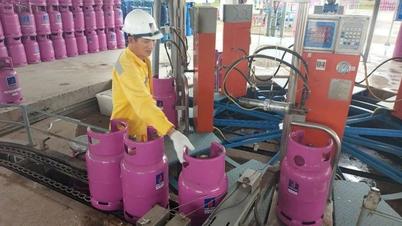



















Comment (0)